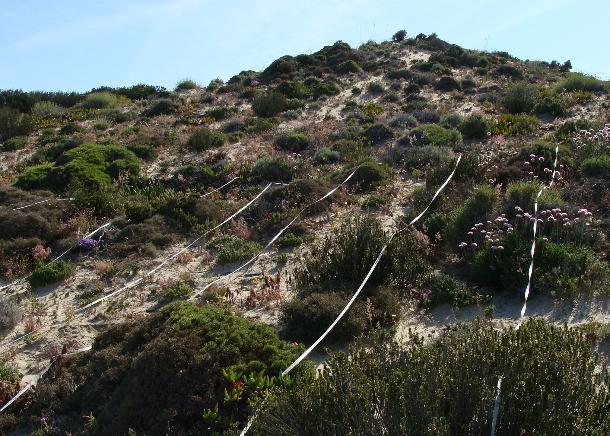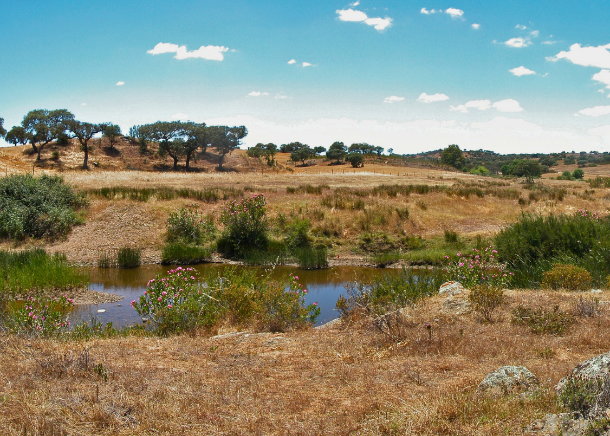Summary:
The Mediterranean region is expected to be one of the world regions more strongly affected by climate change. Climate change scenarios for this region show an increase in air temperature, a decrease in annual precipitation and more severe weather extremes. These changes will have, undoubtedly, a wide impact both on organisms and ecosystems. The timing of biological events is strongly controlled by climate and, as a consequence, many organisms are changing their life cycles. While temperature has been demonstrated as one of the most determinant factors on biological processes, few studies have assessed the effect of other environmental factors like the balance between rainfall and evaporation which plays a key role in Mediterranean ecosystems functioning. Insect pests are a major threat to many forests worldwide. Rising temperatures as a consequence of climate change are increasing the frequency and intensity of pest outbreaks accompanied by range shifts of pests poleward or to higher altitudes. It is also well known that factors which cause stress, such as drought, increase susceptibility of host trees to pests. The forestry sector is strategic for Portugal as forests contribute definitively to the national economy, provide important benefits to the environment and contribute to the well-being of society as a whole. Forest ecosystems provide climate regulation and carbon sequestration, support and enhance biodiversity, protect the soil against erosion and guarantee air and water quality maintenance. Two relatively recent anomalous events happen in Portuguese coastal forests related with major pests. In 1997 a pine processionary moth population (PPM), with a shifted life cycle, heavily defoliated a significant proportion of the National Pine Forest of Leiria, located at Central Coastal Portugal, while the normal population remained stable and low, coexisting in the same area. In 1999, the pine wood nematode (PWN) was discovered in maritime pine plantations located at the South Coast Portugal. The PPM has recently received much attention because it is expanding in latitude and altitude due to an increase in global temperatures. The paradox is that in a core area of its distribution (Central Portugal) a PPM with a shifted life cycle, whose development enfolds during the summer instead of the winter, such as the normal version of the species, ends up having an advantage, reaching outbreak levels, which the normal version of the species does not. However, other climatic parameters besides temperature, such as precipitation and radiation, seem to have a strong impact on the PPM population dynamics, benefiting the PPM
from dry and sunny conditions. Mortality by the PWN is higher at South of the Sado River (our data). Recent inoculation experiments revealed that susceptibility of P. pinaster increases in dry and hot conditions. Along the Portuguese coast there is a steady decrease in precipitation and increase in temperature from north to south. Maritime pine forests in the south are also more stressed, growing less well. The question is to which extent climate change is impacting pinewood nematode and/or tree physiology. Results obtained in a previous project, point to a clear effect of water stress on the development of the disease. The impacts of severe infestations by these pests comprise important economic, environmental and social losses. Thus, in a context of climate changes, in which forests are expected to become more vulnerable to forest pest attacks, it is important to know how
pine forest ecosystems will be impacted. In fact, adaptation to changes needs to become a prominent issue in land use planning if forested landscapes are to become sustainable. Some authors have used large-scale climatic indices such as NAO to evaluate climate changes on phonological responses, to model and predict future species distribution. However, for a good planning it is essential to have a clear view at a local scale.
The aim of this project is to study the impact of climate changes on the coastal pine forests of mainland Coastal Portugal and its relations with the recent outbreaks of the shifted population of the PPM and PWN. More specifically, we want to assess, not only the influence of the increase in air temperature, but also if changes in precipitation and radiation are driving these recent outbreaks. The appearance of these two exceptional outbreaks gives us that opportunity. Three locations will be selected along a climatic gradient (decreasing precipitation and increasing temperature from north to south). Furthermore climatic time series will be analyzed. The ultimate goal of this project will consist in a better understanding of the impact of climate changes on pine forests as regards the host, the pathogens and vectors.
Keywords:
Forest pests; Climate change; Phenology; Biomass
Funding Institution:
Fundação para a Ciência e Tecnologia.
Partners:
Project Leader: Maria Teresa Calvão Rodrigues, Universidade Nova de Lisboa, NOVA.ID.FCT - Associação para a Inovação e Desenvolvimento da FCT (NOVA.ID.FCT/FCTUNL/UNL).








